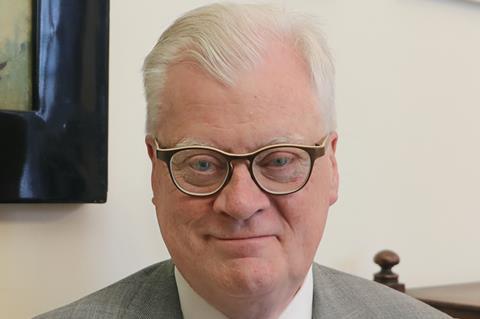A new initiative to clear rape cases which have been in the system for more than two years is welcome, but lawyers say investment in a dedicated workforce is the only way to tackle the backlog properly
The ‘serious stain’ of over 180 alleged rape cases which have been in the courts system for more than two years will be prioritised for trial this year, the senior presiding judge pledged this week.
Under the new initiative, Lord Justice Edis said 181 cases which reached or passed their second anniversary on 31 December 2023 will be listed or heard by the end of July – ‘where possible’.
The cases, which account for around 6% of all rape cases, had been delayed for reasons including the pandemic and the bar’s protest action, but the ‘primary reason’ was the shortage of advocates, Edis said. ‘This is an unacceptable state of affairs from the point of view of complainants, witnesses, defendants, and justice generally.’
Some cases have defendants who are not in the jurisdiction while others are awaiting retrial. Some have been listed for trial in August or September 2024, past the July deadline.

The initiative comes from the Crown Court Improvement Group, set up in 2021 to improve court efficiency and performance by bringing together agencies from across the criminal justice system. Edis said he had spoken to all resident judges, the Crown Prosecution Service, together with Criminal Bar Association leaders, the bar chair and the Law Society. He said: ‘No one has said this is impossible [or] you can’t possibly do this. Everybody who can give a commitment on behalf of their part of the system has done so.’
Though ‘cautiously optimistic’, Edis admitted there were challenges. Foremost is the availability of specialist advocates. There is also ‘a real problem with late delivery of prisoners’, likely arising from prison population difficulties.
‘But I think as long as we are left untroubled by further pandemics, further action by the advocates, by any adverse impact from the prison population and just left to get on with it, we’ll continue to be productive.’
'[This is] a plaster for a bullet wound – what we need to see is a better commitment to the recruitment and retention of prosecution and defence lawyers specialising in this area'
Emma Ferguson-Law, Bolt Burdon Kemp
Edis continued: ‘Our system requires a substantial supply of skilled and experienced advocates in all offence categories, nowhere more than rape and serious sexual offences. If that supply is threatened, our capacity to deal with the work is inhibited and that is a significant limiting factor. We hope that there will be work done, investment made in the long-term, in order to sustain that necessary supply of skilled people in the system.’
Lawyers specialising in the sector cautiously welcomed the announcement. Emma Ferguson-Law, senior solicitor in the abuse team at London firm Bolt Burdon Kemp, said: ‘I hope to see more of our clients achieving justice within a reasonable timeframe if the courts are truly committed to clearing this backlog. However, it’s a plaster for a bullet wound – what we need to see is a better commitment to the recruitment and retention of prosecution and defence lawyers specialising in this area and improved resources for police investigations of rape and sexual assault.’
Tana Adkin KC, chair of the CBA, said it supported the initiative, adding: ‘If the government is serious about prioritising rape cases then it needs to urgently invest in the dedicated workforce specially trained in this work. We are unable to retain and recruit the brightest and the best barristers to RASSO [rape and serious sexual offences] work if fees remain unequal between prosecution and defence and remuneration remains low when compared to other work.’
Law Society president Nick Emmerson said: ‘We agree with Lord Justice Edis that the long delays victims, witnesses and defendants are facing in accessing justice are unacceptable. Scant progress has been made in reducing the huge backlog of Crown court cases. Only increased funding across the entire justice system can reverse the negative impact of years of cuts and underinvestment.’
Summing up his hopes for the scheme, the senior presiding judge said: ‘This is an initiative to get rid of what is, I think, a serious stain on our system.’ He added that once the 181 cases have been dealt with, the courts will look to deal with other old cases ‘before they get as old as this cohort’. He promised that the ‘overwhelming majority’ of alleged rape cases ‘will never get this old’.
However, it remains to be seen if this can be achieved without ending the shortage of specialist advocates.




































No comments yet